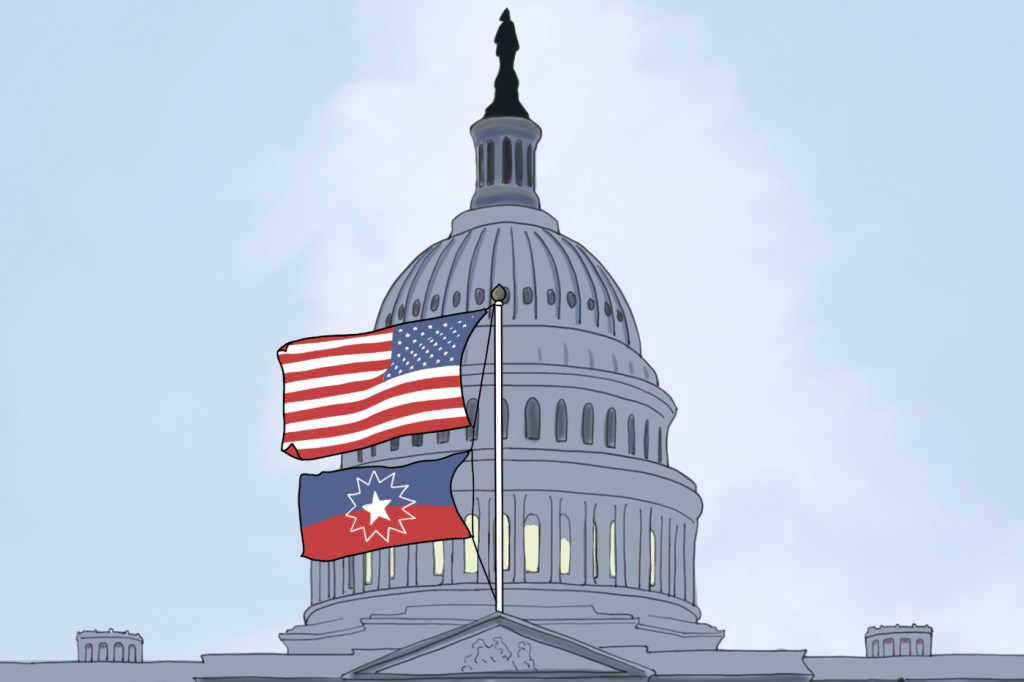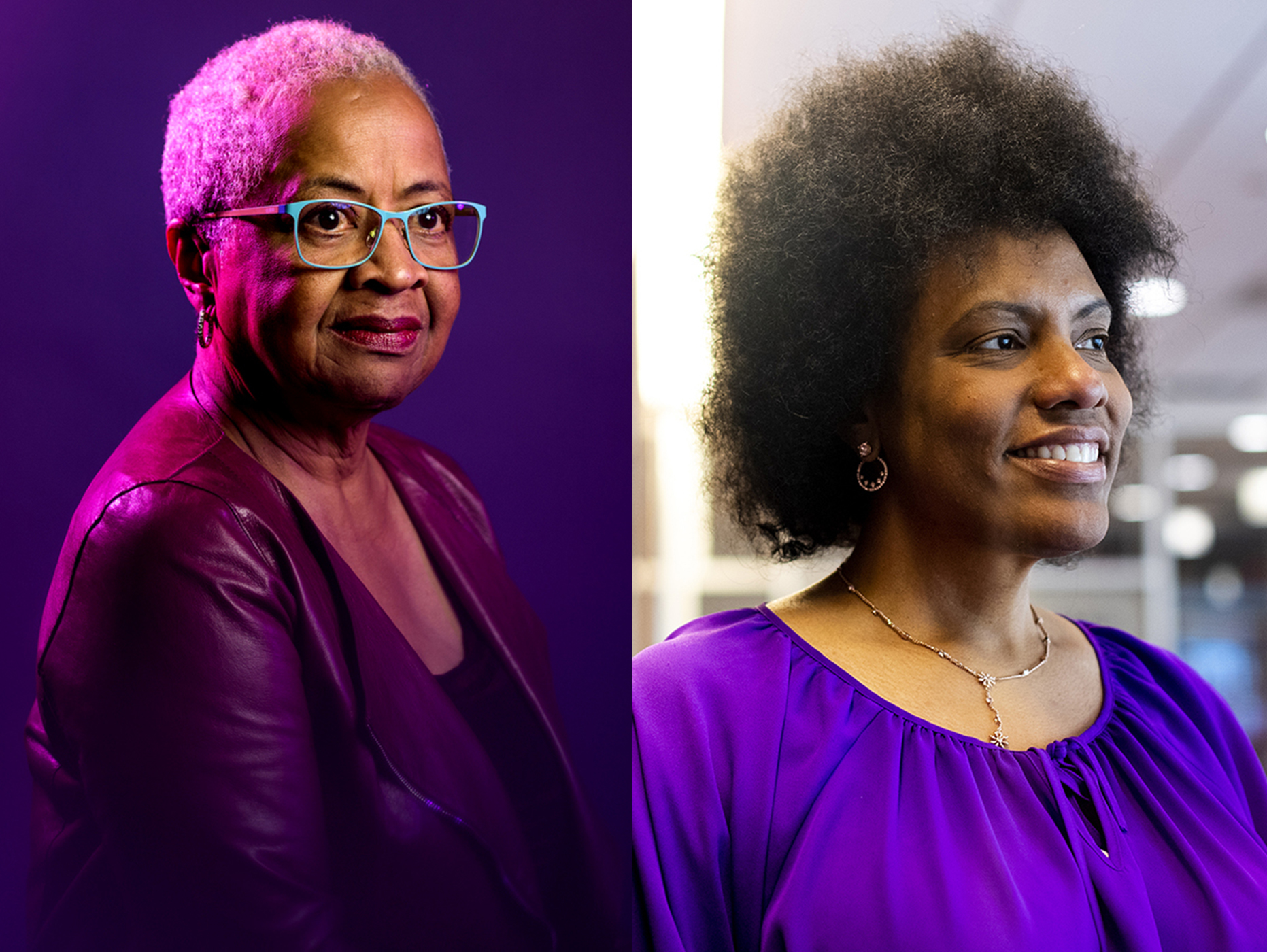Juneteenth just became a federal holiday in the US. Here’s what that means.

Juneteenth became a federal holiday in the United States on Thursday, a move that “flips the script” on the dominant historical narrative in the country, says Patricia Davis, a critical and cultural studies scholar at Northeastern.

Left, Margaret Burnham, university distinguished professor of law and director of the Civil Rights and Restorative Justice Project. Photo by Matthew Modoono/Northeastern University. Right, Patricia Davis, associate professor of communication studies. Photo by Ruby Wallau/Northeastern University
“Making Juneteenth a federal holiday signals that yes, African Americans are included in who we think of when we think of Americans,” says Davis, associate professor of communication studies. “It emphasizes that African American history is American history.”
The holiday commemorates June 19, 1865, the day when Union soldiers brought news of freedom to enslaved people in Galveston, Texas—more than two years after President Abraham Lincoln issued the Emancipation Proclamation that freed enslaved people in Confederate states. Six months later, the 13th Amendment, which outlawed slavery in the U.S. was ratified. “Juneteenth” is a portmanteau of “June nineteenth.”
A bill to establish Juneteenth National Independence Day as a federal holiday—the first since Martin Luther King Jr. Day was created in 1983—was signed into law by President Joe Biden on Thursday.
“Juneteenth marks both the long, hard night of slavery and subjugation and the promise of a brighter morning to come,” Biden said during a signing event at the White House. “I’ve only been President for several months, but I think this will go down, for me, as one of the greatest honors.”
“When we establish a national holiday, it makes a statement,” said Vice President Kamala Harris during the same event. “These are days when we as a nation have decided to stop and take stock, and acknowledge our history.
“We have come far, and we have far to go,” Harris said, “but today is a day of celebration.”
Designating Juneteenth as a national holiday also serves to connect the country’s history with its legacy in the present, say Davis and Northeastern legal scholar Margaret Burnham.
“We achieve a continuity of past and present that only a true accounting of history makes clear,” Davis says.
Such an accounting, says Burnham, who founded the Civil Rights and Restorative Justice Project at Northeastern, where she serves as university distinguished professor of law, is necessary to remedy the harm caused by a history of enslavement and discrimination.
“A greater recognition of the past, and a greater acknowledgement of the continuing presence of the past in the present, is critically important to properly redress the racial violence, racial subordination, racism, and white supremacy that we face today,” she says.
This legacy of inequality is manifest in many ways, including (but not limited to) a persistent pay gap between white and Black workers, discriminatory lending practices for real estate purchases, racial health disparities, and drastically higher incarceration rates among Black people than any other racial group.
“The tragedy of these early periods in America’s history was not just what happened to people but the sweeping under the rug of what happened,” Burham says. “When you bury all that history, it does infect what you can do moving forward. It doesn’t disappear; it’s still part of the history, so you have to deal with it.”
Burnham’s work within the Civil Rights and Restorative Justice Project deals intimately with exposing this history. She leads teams of law students in uncovering and reconciling hundreds of unsolved murders of Black people during the Jim Crow era. Burnham was also recently nominated by Biden to serve on the national Civil Rights Cold Case Records Review Board.
The work involves combing through newspapers that were part of the Black press to search for coverage of murders that weren’t covered by traditional news outlets; unearthing death certificates and other official records; and finding and connecting with any living family members of the deceased.
“We have a vacuum-cleaner approach” when it comes to state and federal repositories such as the Library of Congress, National Archives, and any available primary source files from the U.S. Department of Justice and NAACP, Burnham says.
Their work requires filing hundreds of requests under the Freedom of Information Act and digging up information about race-based violence that has been diligently, systematically buried.
“Americans tend to be very much in denial about the ugly aspects of our past,” Burnham says. “In part, it’s because we’ve always been future-looking and upbeat—those are national characteristics.
“But recovering the past matters,” she says. “Families who lost loved ones deserve to know as much as can be found out about what happened. And it matters as we try to reconstruct the history of Jim Crow and beyond. Unless we have a full picture of how it was experienced by the people who lived through it, we’ll never understand how deep the legacy was, how the tentacles reach into every aspect of life now.”
Acknowledging Juneteenth as a federal holiday is a step toward bringing the country’s history to light, say Burnham and Davis.
“What we recognize is not just the history of the brutality in this country, but also the history of the resistance,” Burnham says. “Protests have been buried within the funerals of African American people who were murdered, within the sermons at Sunday church. Resistance is part of this country’s history as well, and it’s important to use it to feed the current resistance movements now.”
For media inquiries, please contact media@northeastern.edu.





